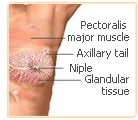Soy Side Effects
Most of the buzz surrounding soy lists the positive aspects, but few sources make mention of the dangers of soy. In fact, soy is known to have potential chemical toxins that high profit manufacturing industries choose to ignore and not remove. Soy even contains carcinogenic toxins. Soy can also cause an allergic reaction in some people, sometimes producing fatal outcomes.
Continue reading below to learn more about soy warnings and side effects.
Warnings
 Soybean hypersensitivity, or soy allergy can be a difficult allergy to deal with as soybeans comprise a major portion of processed food in the United States and elsewhere. Soybeans and soybean products are found in many foods, from baked goods, crackers, infant formulas, soups, sauces etc making it difficult Soybean hypersensitivity, or soy allergy can be a difficult allergy to deal with as soybeans comprise a major portion of processed food in the United States and elsewhere. Soybeans and soybean products are found in many foods, from baked goods, crackers, infant formulas, soups, sauces etc making it difficult
Those who have the soybean allergy must take extreme precautions as there have been reports of severe reactions, including death among soybean-allergic individuals who have consumed soybean. Especially since the threshold dose for soybeans for those who are soy-allergic remains unknown.
** Soybean allergy is among the most common reactions to food. The prevalence of soybean allergy among adults is unknown. Sometimes the allergy in outgrown.
Keep reading to learn about the side effects of soy.
Soy Side Effects
There are a couple things to keep in mind concerning undesirable soy symptoms.
 Soy-based Formula: Negative soy effects arise particularly in infants who are exclusively fed soy-based formula. Babies fed soy-based formula have the estrogenic equivalent of five birth control pills a day. This causes girls to develop quicker than normal and causes and underdevelopment in boys. Soy formula has also been linked to auto immune thyroid disease. Soy-based Formula: Negative soy effects arise particularly in infants who are exclusively fed soy-based formula. Babies fed soy-based formula have the estrogenic equivalent of five birth control pills a day. This causes girls to develop quicker than normal and causes and underdevelopment in boys. Soy formula has also been linked to auto immune thyroid disease.
 Infertility: There is no clear cut proof that soy may affect fertility. There have been studies that have shown the birthrate in countries where soy products are consumed in large quantities is no lower than in countries where soy is not commonly consumed. Other studies show that high levels of soy protein may decrease fertility. Researchers on this side of the soy fertility debate have learned in a small number of studies that soy can increase the menstrual cycle length, decrease the Follicle-stimulating hormone (FSH) and decrease leutinizing hormone (LH). It is important to note however that these studies were tested on patients taking in high levels of soy (estimated at 3 12-ounce glasses of soy milk for a month. Infertility: There is no clear cut proof that soy may affect fertility. There have been studies that have shown the birthrate in countries where soy products are consumed in large quantities is no lower than in countries where soy is not commonly consumed. Other studies show that high levels of soy protein may decrease fertility. Researchers on this side of the soy fertility debate have learned in a small number of studies that soy can increase the menstrual cycle length, decrease the Follicle-stimulating hormone (FSH) and decrease leutinizing hormone (LH). It is important to note however that these studies were tested on patients taking in high levels of soy (estimated at 3 12-ounce glasses of soy milk for a month.
Breast Cancer: Once again, much more research is needed to be done concerning soy and breast cancer but the studies that have been conducted can at least point us on the right track.
 Some studies show that soy is harmful to women that already have breast cancer. In younger, pre-menopausal women soy may actually prevent breast cancer while the opposite may occur in post-menopausal women. Soy contains phytoestrogens, or "anti-estrogens" that have the ability to block estrogen from reaching receptors, which may potentially prevent the development of breast cancer. So for those that have high levels of natural estrogen (mostly pre-menopausal women) eating soy foods may be beneficial. For women who have low levels of natural estrogen (post-menopausal women) soy can actually be harmful. Soy can become a "pro-estrogen" in post menopausal women, adding estrogen to the body and increasing the risk of breast cancer among post-menopausal women. Some studies show that soy is harmful to women that already have breast cancer. In younger, pre-menopausal women soy may actually prevent breast cancer while the opposite may occur in post-menopausal women. Soy contains phytoestrogens, or "anti-estrogens" that have the ability to block estrogen from reaching receptors, which may potentially prevent the development of breast cancer. So for those that have high levels of natural estrogen (mostly pre-menopausal women) eating soy foods may be beneficial. For women who have low levels of natural estrogen (post-menopausal women) soy can actually be harmful. Soy can become a "pro-estrogen" in post menopausal women, adding estrogen to the body and increasing the risk of breast cancer among post-menopausal women.
Hypothyroidism: Soy products may increase the risk of thyroid disease. Infants on soy milk are more likely to develop thyroid disease than infants on normal formula. Opponents of soy believe soy is a toxin for thyroid patients while others believe it is safe if eaten in moderation.
Now that it�s been explained the side effects of soy, click on the following link to learn about the use of soy during menopause.
Which herb should women try? Today women are looking for relief from their menopause symptoms with herbs. Phytoestrogenic herbs and non-estrogenic herbs are good in relieving menopause symptoms, but recent studies show that non-estrogenic herbs have no side effects because they help the body to produce its own hormones instead of introducing hormones like the phytoestrogenic ones. Learn more about non-estrogenic herbs for menopause.
| 

